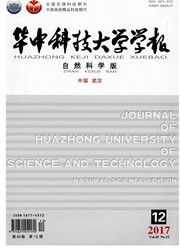

 中文摘要:
中文摘要:
针对认知无线网络中主用户信号在空频域的稀疏性,基于贝叶斯压缩感知(BCS)的信号重构通过层次化贝叶斯分析分级先验模型获得稀疏信号估计.将贝叶斯压缩感知应用于认知无线电宽带压缩频谱检测,利用多认知用户感知信号的时空相关性实现在多用户多任务传输条件下的稀疏信号重构与宽带压缩频谱检测.研究了基于期望最大化算法和相关向量机模型的多任务BCS参数估计.仿真结果表明:相比于传统单任务BCS重构方法,多任务BCS在节点能耗与网络带宽受限的条件下,通过对估计参数的合理优化,在较低压缩比区域可实现重构均方误差的快速收敛,且检测性能随着任务数的增加而提高.当感知数据相关性从25%增加到75%,且任务数一定时,所提方法的重构观测数明显下降,宽带频谱检测性能显著提高.
 英文摘要:
英文摘要:
Aimed at the sparsity of primary users′signals in spatial-frequency domain in cognitive radio networks(CRN),sparse signal estimation was obtained by signal reconstruction based on Bayesian compressive sensing(BCS)via hierarchical Bayesian analysis model.BCS was applied into wideband compressive spectrum detection in cognitive radios.Considering the spatial-temporal correlation between multiple SU sensing signals,the correlation structure was utilized to realize sparse signal recovery and wideband compressive spectrum detection under multi-user multi-task transmission conditions.Multi-task BCS parameter estimation based on expectation maximization(EM)algorithm and relevance vector machine(RVM)model were studied respectively.Simulation results indicate that,compared with the conventional single task BCS reconstruction,multi-task BCS realizes the fast convergence of reconstruction mean square error(MSE)within lower compressive ratio region by the rational optimization of the estimated parameters under energy consumption and network bandwidth constraints.Moreover,detection performance enhances with the increasing of task numbers.When the sensing signal correlation increases from 25%to 75%and the task number is certain,the proposed approach reduces reconstruction measurement numbers and improves wideband spectrum detection performance obviously.
 同期刊论文项目
同期刊论文项目
 同项目期刊论文
同项目期刊论文
 期刊信息
期刊信息
